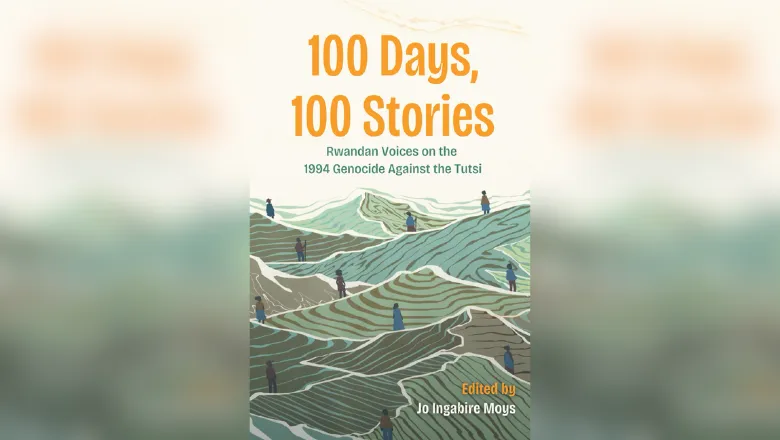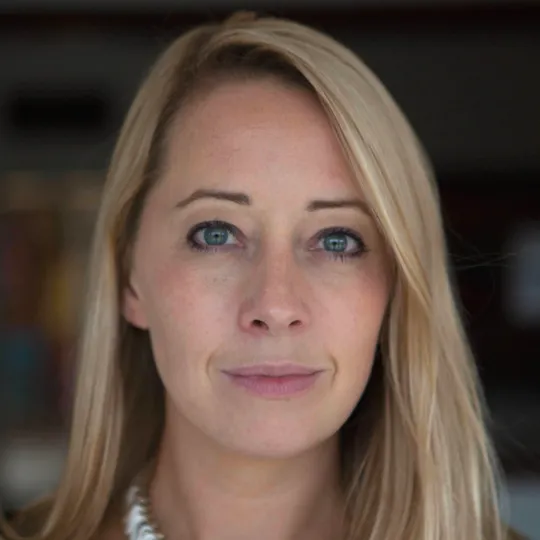A new collection of Rwandan stories launched at King's on 12 December with editor Jo Ingabire Moys and associate editor Dr Zoe Norridge, Reader in African and Comparative Literature and Visual Cultures.
Published by Rwanda’s Huza Press, 100 Days, 100 Stories: Rwandan Voices on the 1994 Genocide Against the Tutsi brings together a hundred Rwandan storytellers to reflect on vivid memories, decisions and moments of change. Storytellers include genocide survivors, rescuers, perpetrators, people who returned from exile and their children.
Their stories take us to the core of what it means to be human in the face of violence and death. They share the hopes and fears of Rwandans in moving and endlessly varied ways.
Dr Zoe Norridge, Reader in African and Comparative Literature and Visual Cultures
At the event, Ingabire and Norridge were joined by a panel of Rwandan experts to discuss why it is so important for Rwandans to tell stories about their past, on their own terms.
The launch alternated between discussion with panel members and stories from the collection, read by acclaimed actor Michelle Asante (Top Boy, The Essex Serpent, This England, Noughts & Crosses).
Attendees included Rwandans living in the UK and His Excellency Johnston Busingye, High Commissioner of Rwanda to the United Kingdom. Also in the audience were King’s staff and students, academics researching Rwanda from across the UK, civil servants, artists and publishers.
Ingabire, who is a child survivor of genocide, explained that the idea for the collection stemmed from early conversations with fellow survivor Eric Murangwa Eugene MBE about the importance of writing down the experiences of survivors. Norridge became involved in supporting the project when she was Chair of Ishami Foundation, a charity founded by Ingabire and Murangwa to draw on genocide survivor experience to connect us all to our common humanity. All three felt passionately not only about the importance of foregrounding Rwandan voices, but also about Rwandan control over how these narratives were edited, curated and circulated in the world.
 Book cover of 100 Days, 100 Stories, designed by Rwandan artist Odile Uwera.
Book cover of 100 Days, 100 Stories, designed by Rwandan artist Odile Uwera.Alphonsine Kabagabo, Director of Women for Refugee Women, explained to the audience how she had been rescued during the genocide by her brother-in-law, a Belgian peacekeeper. She stressed that he will always be her hero. Then she asked why he wasn’t allowed to take all the people who were hiding with her – Tutsi families who would later be killed. She reflected on the guilt of surviving when so many did not and how the writing workshops held for the book helped her to make peace with her story.
Dr Munyurangabo Benda, from the Queen’s Foundation Centre for Black Theology, spoke about how the book reflects the nuance and complexity of Rwandan identity today. He stressed the importance of the inclusion of different perspectives on the genocide, not least those of young people who are forging new Rwandan identities that are grounded in, but separate from, the histories of their parents.
Professor Tharcisse Gatwa, who has retired from the Protestant University of Rwanda, spoke about the complicity of the church in the genocide and how the imposition of colonialism and Catholicism destabilised Rwandan social structures and encouraged dangerous divisions. Alphonsine Kabagabo, responding to his comments, remembered what it felt like to be threatened by people who only the week before had been worshiping in the same church. The collection includes many stories that touch on faith as both a struggle and source of strength.
Dr James Smith CBE, Co-Founder and Deputy Chair of the Aegis Trust, concluded the panel, reminding the audience that it took a long time for stories of Nazi perpetrators to emerge following the Holocaust. He explained that he couldn’t recall any other collection of testimony from Rwanda that takes such a wide-ranging and unique approach. He praised the focus on vignettes of experience from so many different perspectives: vignettes that come together to form an extraordinary mosaic.
In the questions and discussion the panel and audience returned time and again to the centrality of the arts in surfacing and providing space to think about how the past is renegotiated from the present. Ingabire, whose earlier short film Bazigaga was nominated for a Bafta, commented: ‘To combat racism, we have to look to culture.’ This sentiment was agreed with by leading figures who endorsed the book such as Senegalese novelist and author of Murambi, the Book of Bones, Boubacar Boris Diop, and Alice Wairimu Nderitu, United Nations Special Adviser on the Prevention of Genocide.
Here, finally, is the book that was missing from the rich literature on the Rwandan ordeal. More than a book, it is both a statement for history and an act of faith in the future of Rwanda.
Boubacar Boris Diop, novelist
These stories remind us that in Rwanda victims and perpetrators live side by side giving new meaning to the Kwibuka call to remember, unite and renew.
Alice Wairimu Nderitu, United Nations Special Adviser on the Prevention of Genocide
Teaching materials supporting the use of the book in schools, developed by Norridge, King’s alumna Dr Anna Katila, history teacher Andrew Lawrence MBE and Ishami Foundation’s Eric Murangwa Eugene, alongside other survivor educators and teachers, will be launched in January.
About the book
100 Days, 100 Stories is available from Ikirezi bookshop in Rwanda or from Bookbag in the UK, and will soon be available from African Books Collective internationally.
The book was funded by the Arts and Humanities Research Council, the Department for Levelling Up, Housing and Communities, the Tudor Trust, Arts Council England and King’s College London.
The launch was supported by the Department of Languages, Literatures and Cultures, the Department of English Research Strand in Global Englishes, and the Global Cultures Institute.



